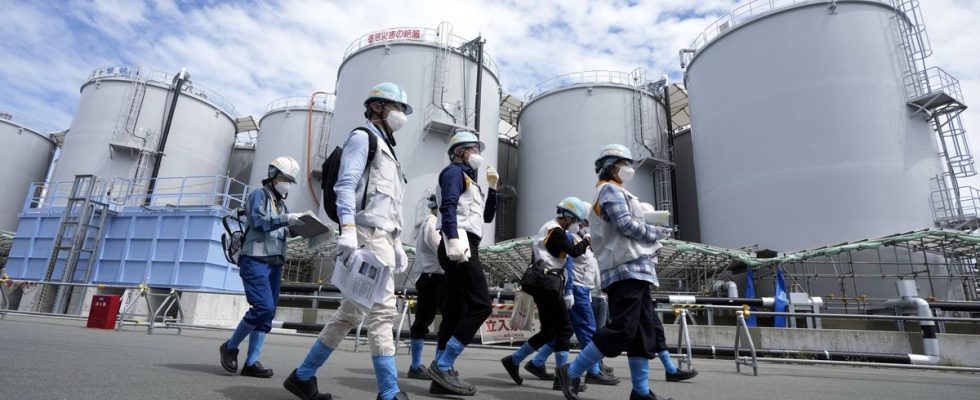Japanese workers stole and resold potentially radioactive scrap metal from a construction site near the Fukushima nuclear power plant, the Japanese Ministry of the Environment said, confirming local media reports. The events occurred a few months ago on the demolition site of a museum-library in Okuma, a locality neighboring the Fukushima Daiichi power plant which had been completely evacuated until 2019 because of the radiation caused by the accident which affected the nuclear power plant in 2011, itself caused by a gigantic tsunami.
The joint venture in charge of the construction site became aware of the thefts in late July and immediately informed the Environment Ministry, which is cooperating with police investigating the matter, said Kei Osada, a ministry official. Sources close to the matter told the Japanese daily Mainichi that workers had illegally resold scrap metal recovered from the site to other companies for around 900,000 yen (5,700 euros).
No high level of radioactivity, a priori
These materials were not checked for their radioactivity level before being stolen and their degree of dangerousness is therefore unknown, specifies Kei Osada. The likelihood that they were highly radioactive, however, is low because they must have been part of the building’s internal steel structures which were “unlikely to have been exposed to the high levels of radiation at the time of the nuclear accident”, he said. -He specifies.
Intense decontamination work has been carried out at Fukushima since the 2011 disaster, the worst nuclear accident in the world since Chernobyl in 1986. This has gradually allowed evacuated residents to be allowed to return to live there. Few of them have, however, taken the plunge and prohibited zones remain, still representing 2.2% of the area of the Fukushima department, or a little more than 300 km2.
Furthermore, since the end of August, Japan has started releasing water from the Fukushima power plant currently being dismantled into the Pacific Ocean. This water was previously treated to remove most of its radioactive substances, with the exception of tritium. This radionuclide is only dangerous in high concentrated doses, but despite numerous safety measures taken by Japan and the green light from the International Atomic Energy Agency (IAEA), China has violently denounced this operation. and suspended all its imports of Japanese seafood products.

